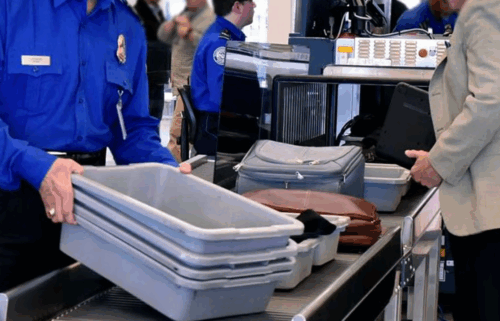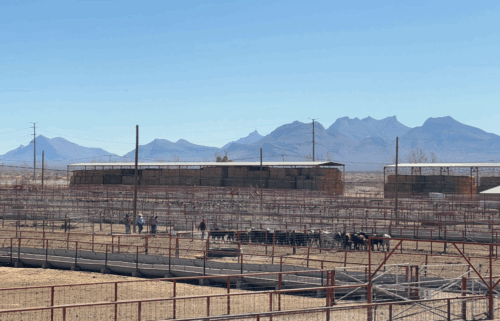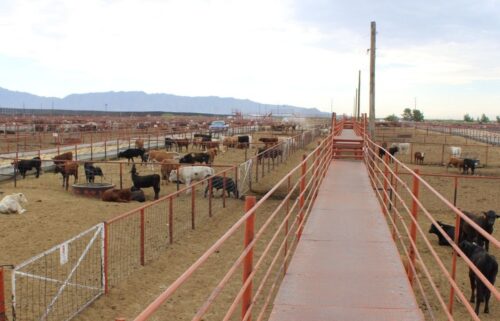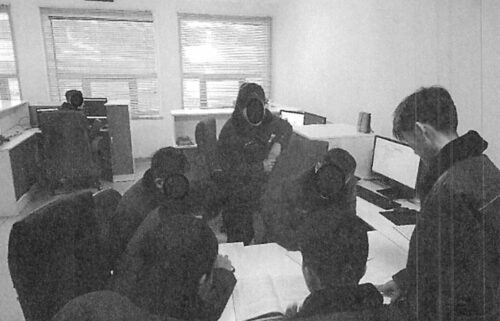FDA authorizes a second Covid-19 vaccine as US reports highest number of daily cases
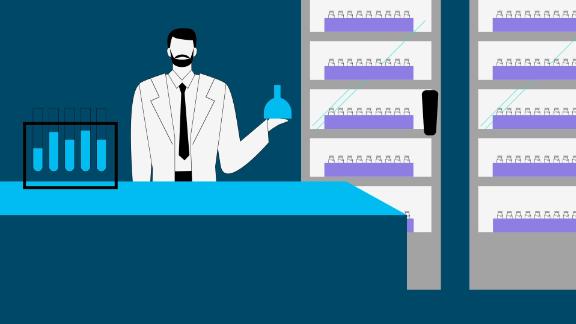
A second Covid-19 vaccine will soon be shipped out across the country — a “remarkable scientific achievement,” according to one expert, that brings the country one step closer to the end of a brutal pandemic.
“It is through the dedicated efforts of our federal scientists and their collaborators at Moderna and in academia, the clinical staff who conducted the vaccine’s rigorous clinical trials, and the tens of thousands of study participants who selflessly rolled up their sleeves, that another safe and highly effective vaccine to protect against COVID-19 will soon be rolled out to the American public,” Dr. Francis Collins, the director of the National Institutes of Health, said in a statement.
The US Food and Drug Administration on Friday authorized Moderna’s vaccine candidate for emergency use in people 18 and older. Before those vaccinations can begin, a US Centers for Disease Control and Prevention vaccine advisory panel — scheduled to meet Saturday — must vote to recommend the vaccine, and the agency must accept that recommendation.
The second green light comes as hundreds of Americans across the country have already received their first dose of the Pfizer/BioNTech vaccine, which was authorized by the FDA last week.
Leading officials, including Vice President Mike Pence and US Surgeon General Jerome Adams, received the vaccine publicly Friday, in an effort to encourage public confidence.
“This is the beginning of the end,” Adams told CNN Friday night. “Make no mistake about it, it’s going to be a hard couple of weeks. We’ve still got work to do to get over this surge, but I want people to be encouraged.”
He chose to get the vaccine on TV because he wanted the American public to “understand I’ve looked at the data, I’ve worked with the companies and I felt safe getting the vaccine,” he said.
The dean at Morehouse School of Medicine also got the vaccine live on CNN Friday morning, saying that while she understands some Black Americans are concerned because of the nation’s history of racism in medical research, she wouldn’t recommend a vaccine she doesn’t trust.
“Really, this is a life and death message for Black people about the coronavirus,” Dr. Valerie Montgomery Rice said.
In a news conference Saturday, Adams said he was more concerned about vaccine confidence than supply, encouraging people who are hesitant to seek out information on the vaccines.
“It’s okay to ask questions,” he said. “What is not okay is to let misinformation or mistrust cause you to make a decision which is going to be bad for your health, or for your family’s health, or your community’s health.”
“This vaccine is almost 100% certain to prevent you or your loved one from getting severe disease,” he said. “It is the way we end this pandemic.”
A raging pandemic that’s far from over
Despite the promising news, it’s not quite the end. In many parts of the US, Covid-19 is still raging across communities.
- More than 18,000 Americans died of Covid-19 in the past week. The University of Washington’s Institute for Health Metrics and Evaluation projects another more than 237,000 Americans will die of Covid-19 over the next three months.
- For the 13th day in a row, the country beat its hospitalization record. There are now more than 114,700 Covid-19 patients in US hospitals, according to the COVID Tracking Project.
- For the past week, the US reported an average of more than 219,000 new Covid-19 infections every day. On Friday, the country broke a record, reporting more than 249,700 new infections.
- Three Alaska health care workers had allergic reactions after receiving a dose of the Pfizer and BioNTech vaccine this week. The FDA has said there is a “remote chance” the vaccine could cause a severe allergic reaction. Because so many people are taking the vaccine at once, the public may perceive these severe reactions as being far more common than they actually are. The FDA said Saturday it would alert the public if any changes to its emergency use authorization were necessary.
Here’s the difference between the two Covid-19 vaccines the FDA has authorized
Moderna vaccine distribution has already started
Gen. Gustave Perna, chief operating officer for the federal government’s vaccine initiative Operation Warp Speed, said distribution of the Moderna vaccine has “already begun.”
“Boxes are being packed and loaded today,” he said in a news conference Saturday. “Trucks will begin rolling out tomorrow, from FedEx and UPS, delivering vaccines and kits to the American people across the United States.”
There were 7.9 million doses of vaccines allocated this week, Perna said, and the US is “on track” to allocate 20 million doses by the end of the year.
More than 6 million doses of Moderna’s vaccine will be shipped to more than 3,200 sites where they will be administered — far more than the 636 sites that Pfizer’s vaccines were shipped to.
Meanwhile, some states say they’ve been informed they will receive fewer Pfizer vaccine doses next week than initially promised.
Massachusetts health officials said it wasn’t clear why the dose numbers have changed.
“The Department of Public Health now expects to receive … a little bit more than 145,000 doses of the Pfizer vaccine by the end of December — a number that has been reduced from 180,000. That’s about a 20% decline,” Secretary of Health and Human Services Marylou Sudders said at a news conference.
“At this time, it’s not clear to us why the shipment amounts have been adjusted,” she said.
Massachusetts Gov. Charlie Baker said officials were “certainly frustrated that we won’t be receiving the amount that we expected in the first wave and are working to get clarity on what this means.”
In Saturday’s news conference, Perna attributed the lower allocations to a “planning error,” and said he was taking “personal responsibility for the miscommunication.”
“To the governors, to the governors’ staff, please accept my personal apology if this was disruptive in your decision making and in your conversations with the people of your great state,” Perna said. “I will work hard to correct it.”
An ‘error’ in distribution excludes health care workers
In California, Stanford Health Care apologized for “errors” in their vaccine distribution plan that excluded a majority of front line health care workers, CNN affiliate KGO reported.
Only seven out of more than 1,300 medical residents and fellows were slated to receive the vaccine and priority was given to faculty and attending physicians who work from home under Stanford Health’s distribution plan, the affiliate reported.
“Our intent was to develop an ethical and equitable process for distribution of the vaccine,” Stanford Health Care said in a statement obtained by the news station.
“We apologize to our entire community, including our residents, fellows, and other front line care providers, who have performed heroically during our pandemic response. We are immediately revising our plan to better sequence the distribution of the vaccine,” the statement said.
CNN has contacted Stanford Health Care for comment.
Video taken by the affiliate showed people in scrubs and PPE demonstrating Friday, and chanting, “First in the room, back of the line.”
President and CEO of Stanford Health Care David Entwistle addressed workers at the protest Friday and took responsibility, according to the San Francisco Chronicle.
“We got it wrong. Let’s get you vaccinated,” Entwistle told the crowd, the San Francisco Chronicle reported. “We’ll correct it.”
Different states, different measures
As state and federal officials gear up for more vaccine shipments, different parts of the country are reporting different Covid-19 trends.
In New York, Gov. Andrew Cuomo said hospitals are at “crisis management” mode and capacity has been added at facilities across the state.
“I believe hospitals are going to be able to manage this,” he said. “We learned a lot in the spring.”
In Los Angeles County, hospitals are quickly running out of intensive care beds as the region continues to see an overwhelming spike in Covid-19 infections.
“L.A. County is moving toward becoming the epicenter of the pandemic,” Dr. Brad Spellberg, chief medical officer at LAC + USC Medical Center, warned Friday, adding, “I’m not going to sugarcoat this. We are getting crushed.”
Dr. Thomas Yadegar, the ICU director at Providence Cedars-Sinai Tarzana Medical Center, told CNN that the situation is “by far the worst that it’s been in the past nine months.”
“We need L.A. to turn into a ghost town again,” he said, referencing the early days of the pandemic when the public was largely cooperating with the advice of health officials. “That’s what we need, so that we can try to save as many people and heal as many souls.”
Rhode Island Gov. Gina Raimondo announced the state will end a “pause” on Sunday that was put in place to curb the spread of the virus, after a downturn in Covid-19 metrics, including positivity rate. Still, residents are encouraged to wear a mask and social distance, officials said.
Michigan’s governor also announced Friday the lifting of some restrictions, which according to health officials comes after a decrease of Covid-19 markers in the past month.
In-person classes can resume at high schools and indoor venues such as movie theaters can reopen with capacity limits and other safety precautions, the governor said. Outdoor group fitness activities and outdoor non-contact sports can also resume.

